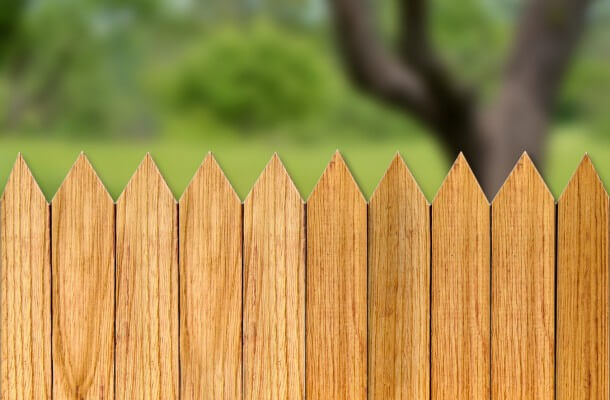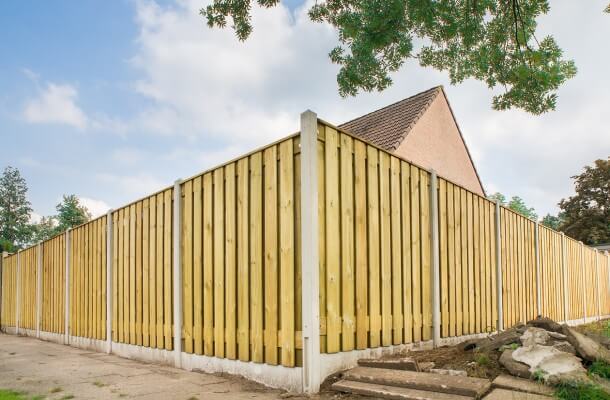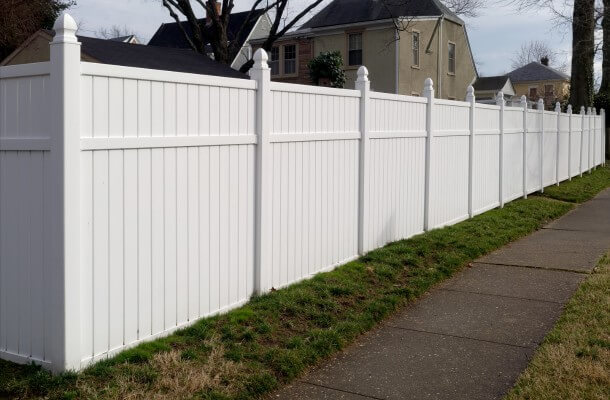Fences can be a great way to add privacy, security, and aesthetic appeal to your Quincy property. However, the city does have laws and regulations regarding fence height and other specifications that you need to keep in mind before installing a new fence.
Knowing the fence height restrictions in Quincy can help ensure your fence complies with city ordinances.
What are the fence height restrictions in Quincy?
The Quincy municipal code has specific regulations when it comes to fences on private property. Here are the key fence height restrictions to keep in mind:
- Front yard fences – Front yard fences in Quincy cannot exceed 4 feet in height. This includes along the sides of the front yard up to the front plane of the house.
- Rear and side yard fences – Fences along the rear and side yards behind the front plane of the house can be up to 6 feet high.
- Corner lots – For corner lots, the front yard restrictions apply to both street-facing sides. So fences along both frontages can only be 4 feet high.
- Alleyways – There is no height limit for fences along alleyways and rear lanes.
- Swimming pools – Fences around swimming pools are subject to additional regulations for safety. Pool fences must be at least 6 feet high with self-closing and self-latching gates.
So in summary, front yard fences cannot exceed 4 feet, while rear and side yard fences can go up to 6 feet in height in Quincy. Always double-check your property lines when planning a fence installation.
Are there any exceptions to the fence height rules?
The city does allow some exceptions to the standard fence height limitations in certain specific circumstances. Some instances where taller fences may be allowed include:
- Corner visibility – Taller fences may be permitted on corner lots if they do not obstruct visibility for traffic. You may need to apply for an exception permit.
- Security and privacy – Homeowners may request an exception permit for taller backyard fences up to 8 feet for added security and privacy. This is evaluated on a case-by-case basis.
- Sports courts – Fences around tennis courts and other recreational sports courts on private property can receive permits to exceed 6 feet in height.
- Swimming pools – As mentioned, pool fences taller than 6 feet may be required to meet safety regulations.
- Farm animals – Residents keeping farm animals like horses may get permits for taller perimeter fences on larger lots.
Always check with the Quincy building department if you think your property may qualify for an exception to the fence height rules. They can guide you through the proper permit application process.
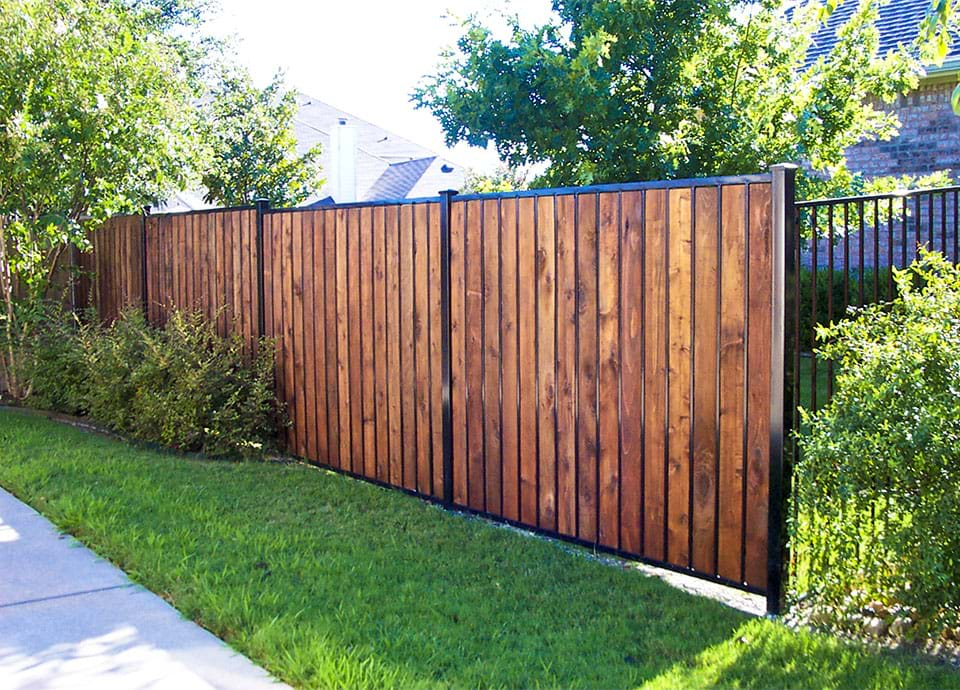
What materials can be used for fences in Quincy?
Quincy allows a variety of materials for building residential fences, as long as they are weather resistant and look aesthetically pleasing. Here are some of the most common fencing materials used:
- Wood – Cedar, redwood, pressure-treated pine
- Aluminum
- Vinyl
- Composite materials
- Masonry – Brick, stone, concrete
- Wrought iron or steel
Chain link fences are allowed but generally only in rear yards, not along frontages. Barbed wire, razor wire, and electrified fences are prohibited in residential areas.
When choosing materials, consider the look you want and how much maintenance the fence will require. Good quality wood or vinyl is attractive and weathers well in Quincy’s climate. Wrought iron is a classic look but requires more care to prevent rust. Discuss the pros and cons of different materials with your fencing contractor in Quincy.
Does my Quincy fence require a permit?
In many cases, yes – you will need to obtain a fence permit from the city before installing or replacing a residential fence in Quincy. Here are some key criteria to determine if you need a permit:
- Any fence over 4 feet high will require a permit
- Corner lots need permits for front yard fences even if under 4 feet
- Swimming pool fences require permits to ensure safety codes are met
- Any masonry or brick fence will need a permit
- Permits are required for fence exceptions that exceed height limits
Normal maintenance like fence staining or repairs usually does not require a permit. But always double check with the Quincy building department if you are unsure. Applying for a permit is a straightforward process and ensures your new fence meets all city guidelines.
What is the permit process for a fence in Quincy?
Installing a fence in Quincy that meets city guidelines requires a simple permit process. Follow these key steps:
- Check property lines – Confirm your property lines and measure fence location accurately.
- Review regulations – Verify the fence complies with height, materials, and placement rules.
- Complete application – Fill out the fence permit application available on the city website.
- Submit plans and fees – Provide a site plan showing fence location plus permit fees.
- Obtain permit – The city will review then issue an approved fence permit.
- Schedule inspections – Arrange for the city to inspect during and after installation if required.
- Make any corrections – Make any changes needed if the fence fails inspection before final approval.
Getting a permit ensures your fence complies with Quincy code. The city staff can guide you through any questions during the permitting process.
Are there rules for fence placement or setbacks in Quincy?
Yes, Quincy does have some regulations regarding where on your property residential fences can be installed. Here are some of the key setback and placement guidelines:
- Property lines – Fences cannot typically be built right on the property line without permission. A 1-3 inch setback is common.
- Easements – No fences can block any public utility easements for access.
- Street intersections – Fences near intersections must comply with corner visibility requirements.
- Drainage – Placement should allow proper drainage and not alter runoff.
- Frontages – Front yard fences must be behind the front plane of the house in most cases.
- HOAs – Homeowners associations may have their own rules about fence placement and setbacks.
A permit application will require submitting a site plan with precise fence location. The city will verify it meets requirements during the review process before approval. Checking placement regulations before installing is important.
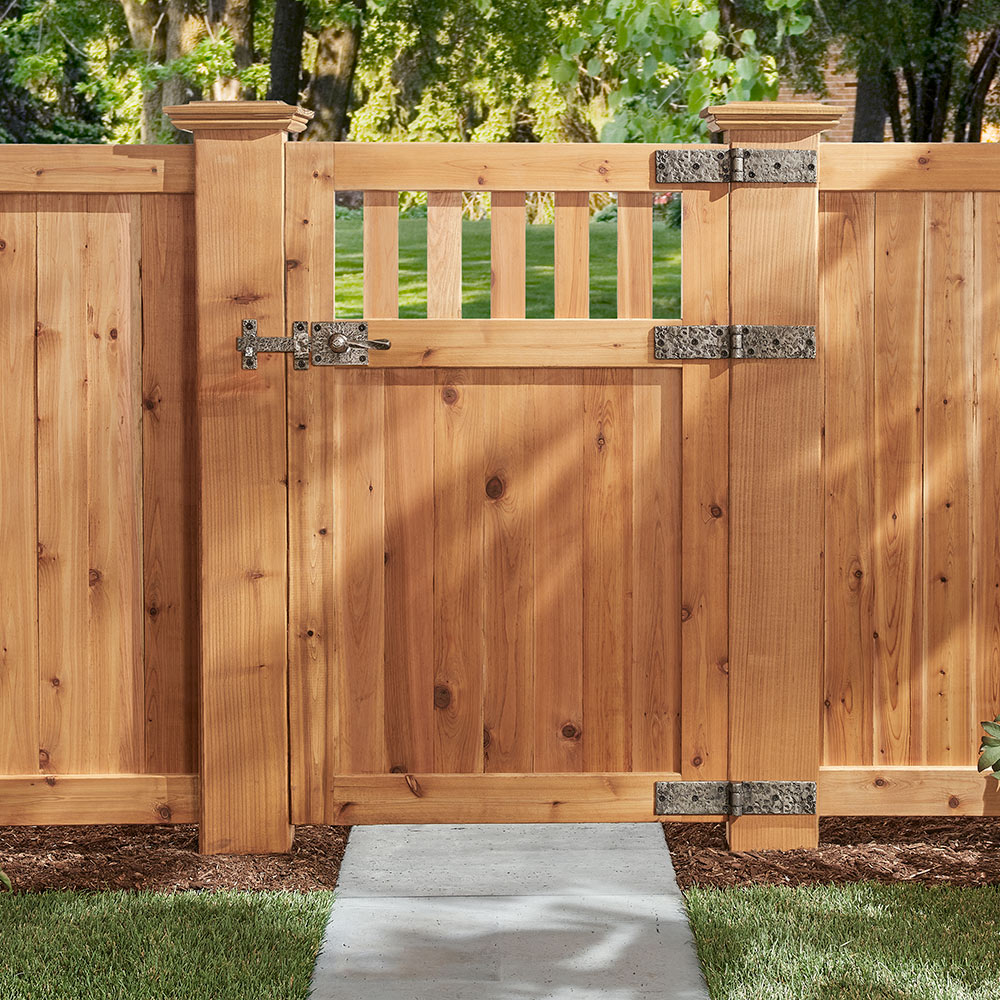
What are the maintenance rules for fences in Quincy?
Property owners who install fences in Quincy are responsible for ongoing maintenance. Here are some key rules and tips for maintaining a fence:
- Keep wood fences stained or sealed and repair any warped or damaged boards.
- Wrought iron or steel fences will need periodic painting to prevent rust and deterioration.
- Cut back any vegetation growing on or near the fence.
- Make sure gates continue to function properly by greasing hardware.
- Check for ground erosion around posts and fill holes or gaps as needed.
- Ensure fence remains structurally sound and replace broken posts or rails promptly.
- Verify the fence does not violate any visibility needs for traffic safety.
- Keep pool fences and gates well-maintained and locked for safety per code.
- Clean off any graffiti or stains promptly to keep the fence looking tidy.
Properly maintaining your fence helps avoid expensive repairs down the road and keeps your property looking good. Check for any needed maintenance at least twice per year.
What are the rules for replacing an existing fence in Quincy?
Replacing an aging or damaged fence on your Quincy property? Many of the same rules and regulations will apply:
- Fence height limits remain the same for front, side and back yards.
- Building permits are required for full fence replacements over 4 feet tall.
- The new fence will need to meet any setback requirements.
- Corner visibility standards must be followed, especially on corner lots.
- Pool fences must continue to meet all safety codes when replaced.
- Any exceptions used for the original fence will likely still apply.
- The new fence should be made of approved weather resistant materials.
In some cases, minor repairs can be made without needing a permit. But for full fence replacements, go through the proper permit application process. This helps ensure the new fence meets Quincy’s guidelines.
What are the consequences for violating Quincy fence codes?
It is important to follow Quincy’s fence regulations, as violations can lead to penalties and forced removal. Some potential consequences include:
- Fines – Code violations may result in civil fines imposed by the city.
- Permit fees – You may be charged double permit fees if work was done without a permit.
- Removal – The city can require the homeowner to take down the noncompliant fence.
- Liens – Unpaid fines or removal costs can result in a lien placed on the property.
- Lawsuits – Severe cases may lead to criminal charges or civil lawsuits being filed.
- Delayed projects – It can halt or delay projects like property sales until the issue is fixed.
Avoid headaches by proactively following Quincy’s fence height limits and permitting processes from the start of your project. Checking the regulations ahead of time makes compliance much easier.
How can I find out more about fence regulations in Quincy?
If you need more information about fence restrictions and permitting in Quincy, there are helpful city resources available:
- Contact the Building Department – Call or visit the office with questions or to learn more about permits.
- Review municipal code – The city website has the complete fences and barriers regulations available.
- Ask a fence contractor – Local fencing companies are very familiar with the Quincy requirements.
- Call Dig Safe – Before any digging, call 811 to identify any buried utilities on the property.
- See HOA rules – If part of one, request info on any homeowners association fence guidelines.
- Check with neighbors – Talk to nearby neighbors to see if they can provide any insights.
With a bit of research, you can ensure your Quincy fence project goes smoothly from start to finish while following all city regulations.

